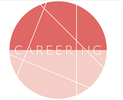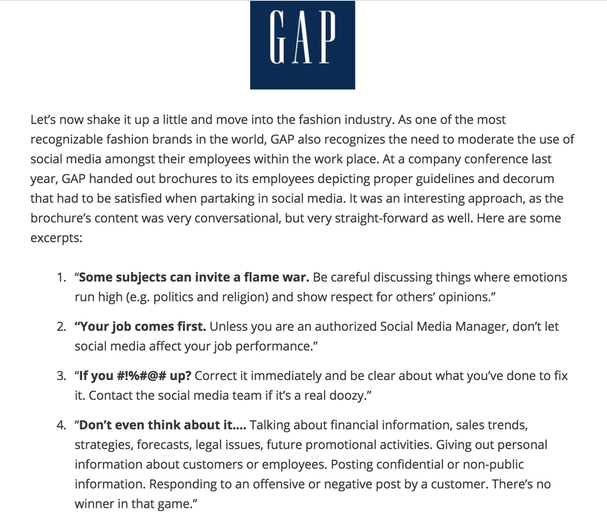Words, Ideas, StuffSome ideas and thoughts, captured with the view to help you.
|
|
Not entirely sure this post title is grammatically correct, or makes sense, but we’re running with it. The intent is to have a quick squiz in the rear vision mirror to extract a couple of things that help shape 2021 to be smarter, better, faster, sexier, funner (also not a word!), and a step up on 2020. Surely that’s not hard to do though right? But let’s step across into this New Year and make it intentional.
A discipline I’ve loved and get a lot of benefit from using when I finish any kind of project is a Post Implementation Review. There are so many ways to do that, but the one I prefer is quick and easy, and helps you know what to change, leave behind, bank as a lesson, or what you’d do differently with the benefit of hindsight. So here it is – use it to review 2020, a big personal project you’ve completed, a work focus area you're now completing, a creative pursuit or fitness challenge you've done, hell, even use it to review and improve on the last guy you dated (for some of us, this is the easy part to upgrade!). Whatever the area, if there's a line in the sand and you're moving forward, this tool and discipline is a good way to capture some gems while things are still fresh in your mind. So let's do it for 2020! Post Implementation Review Quadrant Grab a piece of paper (or create a doc), and draw a 2 x 2 grid (or four squares), label them one by one as follows …. KEEP, CHUCK, CHANGE, ADD. Then add in the deets: Keep – what are the elements that were valuable, that on reflection you would absolutely do again as they enhanced the project or added value? Chuck – the list of things that didn’t work, took valuable time or energy and didn’t ‘make the boat go faster’? The time-wasting parts, the energy-suckers, all the parts that were ‘nice to have’ but weren’t materially impactful. Change - fine tuning. What was ‘almost’ a good part, or made a little contribution that with some adjusting could have been done better? Add – what was missing? How could you have added in some things, people or processes that might have made things work out even better or would be good to have in the mix for next time? There you go, done! It’s a great way to take forward the good bits, grab some lessons learned, and close out and leave behind what doesn’t work for you. Now onwards with the day dreaming, goal setting and laughter, all ready for a stellar year in 2021.
0 Comments
The numbers speak for themselves –“Every night in this country, over 167 women and children are too afraid to stay at home because of family violence.” Right now, these numbers are getting worse. More people are feeling unsafe at home than ever. Headlines like these are real, and confronting: “Covid 19 coronavirus: Domestic violence is the second, silent epidemic amid lockdown” And we can’t hide or close our eyes because these stories are hard to read or hear. We have a serious issue here in NZ, New Zealand has the highest rates of family violence in the developed world. This is personal, and it’s one that really matters to us here at Careering. All women, all people, deserve to feel safe. We passionately advocate for this. Now, we’re supporting Women’s Refuge and gifting a Safe Night too. The premise of “Safe Night” is that now New Zealanders are able to book an escape for those who can’t book one for themselves, for someone who really needs it. They’ll get a safe, clean bed, 24 hour security, hot meals, childcare, helpful advice and care from supportive people. Priceless really. And for $20, you can gift one too. Please do. NEED HELP?Please visit https://womensrefuge.org.nz/get-help/ or call their Crisisline: 0800 REFUGE or 0800 733 843
Phone them toll free from anywhere in New Zealand for information, advice and support about domestic violence as well as help in a crisis. They’re there to help you on this phone number 24 hours a day, seven days a week. You will be automatically redirected to a female advocate in your region. We hear a lot about a fear of failure, but oftentimes, we can also be scared of success. We may not be aware of it either, we're socially bombarded with messages that tell us being successful is amazing. It probably will be, but if it's a new goal, a new area, and requires stepping outside the comfort zone, that fear can fire up. Fear often has to do with worrying about uncertainty, feeling out of control, and wondering 'what will it be like when I've done x, y or z?'.
When you realize you can't answer those questions without doing the actions and starting the journey, and trusting that journey, even if you don’t fully understand what that is, it’s easier to start taking the action needed. You also need to remind yourself that you both deserve and need to be successful and happy. There are typically three areas of success where that fear hides out so when you know about them, you can do something about them! These three areas are fully credited to 99U. 1. Fear of Not Coping With Success If you experience doubts, remind yourself of all the extra resources success will bring you:
2. Fear of Selling Out Firstly, accept that you’ll never please everyone. Backbiting is part of the price of success. Secondly, make sure you are comfortable with your choices. Make a list of all the things you would consider “selling out,” and which you’re not prepared to do. Then keep the list handy. As long as you don’t do the things on that list, you can look yourself in the mirror. Whatever anyone else says about you. 3. Fear of Becoming Someone Else Because we habitually put successful people on pedestals, the idea of becoming “one of them” can feel daunting. You start to worry that you’ll turn into someone else, a person your friends and family won’t recognize—and won’t like. This fear has some foundation in reality. After all, if you were satisfied with the person you are now, why would you want to change? But it’s also founded on a false premise: that change is about leaving your old self behind and replacing it with a completely new one. Change is more complex than that. You are definitely more complex than that. Here's the old saying - feel the fear and do it anyway! DO IT! You know you want to :) One of the super grey areas in today’s tech driven world is - how does social media fit with our personal brands, and with that of our employer* brands? (*employer and workplace can be interchanged with causes you volunteer for, committees or groups you’re part of etc) Society today is diverse, we move towns, countries and companies faster than ever before, which means (thankfully) workplaces today are (hopefully!) more diverse. Not only do diverse workforces include people of different ages, cultures and races, they will also include diversity of thought (hurrah!). That usually means that thought diversity may well include a wide range of views on the use of, and opinions on, social media personally and for business, or while at work. While the definition of ‘at work’ is now more varied than ever (compare the ‘workplace’ of a park ranger with that of an entrepreneur!), the only sense-check should be with that of your employer. The entity that pays your salary, that you have agreed to perform certain tasks and duties for, is the only view that matters as that’s the one that could land you in hot water if you unintentionally breach the policies. A heads up — it might be different to your own view so it does pay to check). Initiating the conversation, being proactive about checking what their view is, is a safe guard for you so you don’t inadvertently cross a line or share a trade secret while using tools and tech you enjoy. Check with the company and your manager on their policy and preferences for using social while at work and what content may/may not be shared via social networks — some companies greatly encourage their crew to share their own work, insights and work stories online, others will be at the other end of the scale. There’s a lot of chat about the risks of social at work, certain industries are of course more focused on protecting their ideas, IP and privacy, so do consider this. If you’ve not come across this before, here’s the view many organisations and entities have — social activity, however innocent it may seem, can impact the brand and reputation, and scary to note that some hackers use social intel to aid criminal activity. So you can see why it’s a big deal for many brands! Businesses need good social media policies to manage risk, and in 2017, it was reported that the Marsh Directors’ Survey of Risk shows that “62% of respondents expect the increasing influence of social media will affect their business over the next 12 months. It ranked ahead of other risks such as problems with talent attraction and retention.” So it’s likely on the radar of the organisation, and if it’s not, it should be! If you think the policy is outdated or there’s not one, you can be a change maker and evaluate what the up and downside could be, and shape a new view. Be sure to include what content is and isn’t okay to share, and what to do if the proverbial shxt hits the fan! When looking at examples of policies, GAP’s one is always touted, Hire Rabbit is reported to say: While we’re chatting about GAP (pls note this is not an endorsement, nor is Careering in any way affiliated with them) but through doing our research we know they also have some great content on their careers section that aligns perfectly with the messages in this book about knowing, and asking for, your worth. So here’s another excerpt from them … “IT’S OBVIOUS WHEN 21% OF YOUR OUTFIT IS MISSING. BUT WHAT HAPPENS WHEN 21% OR MORE OF YOUR PAYCHECK IS MISSING? That’s the reality for most women across the U.S. who earn, on average, 79 cents to every dollar men make. And for non-white women, it can be even worse — African American women, on average, earn 60 cents compared to every dollar men make, and Latina women earn approximately 55 cents. Many millennial women don’t think the gender pay gap applies to them. But even if you’re a woman at the start of your career, statistics show that the gender pay gap is likely to impact you. This is concerning — especially because the pay gap widens as you progress through your career.” While their research is US based, there’s a lot of merit to it and the insights do reflect global trends. You can read more here and complete their calculator which shows you just how much money you stand to lose over the course of your career if you’re paid that 21% less (the US average is $450,000 less than male equivalents. That’s an apartment in Auckland, or a mansion in Westport! While your circumstances may differ, we just wanna say that equal pay for an equal day’s work just makes sense.  Anywho, back to social. Social media can be a powerful tool, especially for businesses that embrace and channel everyone’s enthusiasm. Hubspot data shows that content shared from employee’s personal social accounts about the brand or entity, can achieve 8x more engagement. Reebok have really embraced this - check out their #fitasscompany content. The trick to making this work for your startup, community or company is to be clear about the same things mentioned above: Be sure to include what content is and isn’t okay to share, and what to do if the proverbial shxt hits the fan! It’s also great if you can drive a campaign to get everyone sharing the content, and track it with a hashtag like Reebook did. When it comes to social media and the workplace, there’s no ‘one size fits all’ sorry. It all comes down to what’s appropriate for you and for the organisation, and for the situation. Safety and commonsense must come first, and this quote sums it up quite well what we mean here (excuse the language): “Behind him, he heard Ronan say, "I like the way you losers thought Instagram before first aid. F**k off.”
― Maggie Stiefvater, Blue Lily, Lily Blue. Tony Robbins' team have written a great post titled:
CEO LESSONS FROM SERENA WILLIAMS HOW TO APPROACH YOUR BUSINESS LIKE A HIGH-PERFORMANCE ATHLETE The tips there apply to many more areas than just business. When ever you've pushed yourself to achieve a goal, and you're on the other side of the milestone/event or occasion, take the time to reflect, refine and celebrate. Here's the questions that TR suggests you ask yourself: Evaluate your successes and failures, and in reliving the game, mentally prepare for the next one. • If you lost, how will you keep pushing your practices forward? • If you won, what factors contributed to your success? • What were the key decisions you made, for better or worse? • How will you maintain your strengths and build on your weaknesses? The gender pay gap is the difference between male and female earnings expressed as a percentage of male earnings, according to the OECD. Fawcett Society has calculated this and sets the date as 9 November ... meaning that after this date, women are effectively working for FREE. There are many factors contributing to this. An area I believe has a huge impact, is that of salary negotiation. "We only get paid what we negotiate - NOT what we are worth" (quote credited to my dear friend Brad Lange, Australia). Research shows that negotation is an area women would benefit from increased capability and confidence with. I'm working on a whole chapter of the book to help break this down, demistify negotiation, and make it really easy to work through. Don't wait for me though - get out there and ask for what you're worth! (or email me if you want a hand to do so). This quote from Lottie O’Conor sums it up well .... Imagine if your boss came over to your desk this afternoon, thanked you for all your hard work so far, but said that the company wouldn’t be paying you for the remainder of the year. You’re still expected to be in the office on time every morning, work late on that big pitch or project and hit those targets. You just don’t get paid for your time. Why? Because you’re a woman. |
Categories
All
AuthorMelissa Davies Archives
January 2024
|







 RSS Feed
RSS Feed